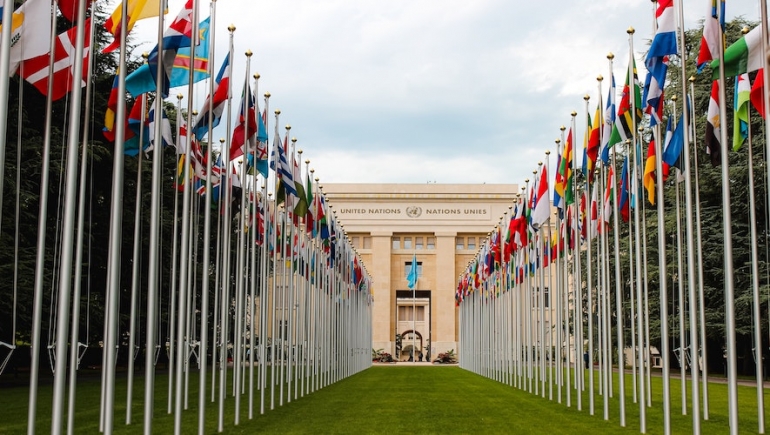By Kaitlyn Oliver
Australia’s human rights record will be scrutinised in 2021, bringing to light new human rights challenges that have arisen out of the COVID-19 pandemic as well as longstanding rights violations.
The UN Human Rights Council reviews the human rights record of every UN Member State every five years through a process called the Universal Periodic Review (UPR).
Australia’s UPR is scheduled for January 2021 in Geneva. At this meeting Australia will discuss the actions it has taken to meet its human rights obligations since the last UPR, and other UN Member States will make recommendations on further steps.
In preparation for the 2021 review, NGOs across Australia have prepared a joint Report to the UN Human Rights Council on the state of human rights in Australia. ‘Australia’s 2020 United Nations UPR NGO Coalition Report’ was coordinated by the Human Rights Law Centre, Caxton Legal Centre and Kingsford Legal Centre, and endorsed by over 200 NGOs.
Director of Kingsford Legal Centre, Emma Golledge, says the UPR will highlight Australia’s progress in addressing human rights issues and areas where there has been insufficient progress.
“It forms an important part of assessing Australia’s human rights internationally and provides real opportunities to improve the realisation of human rights in Australia,” Emma says.
The NGO Report was finalised in April 2020 after the impacts of the climate crisis were seen in the summer bushfires and the COVID-19 pandemic was starting to take hold worldwide. The submission was delayed due to the pandemic and incorporates the ongoing impact of COVID-19 on human rights in Australia.
The report highlights a number of areas where Australia can improve its protection of human rights, including for asylum seekers and refugees, older people and people with disabilities. A key focus is the continued effects of colonisation, marginalisation and racism on Aboriginal and Torres Strait Islander peoples.
The critical need to raise the age of criminal responsibility to 14 years and the over-policing of Aboriginal and Torres Strait Islander peoples are identified as significant issues.
“We have longstanding and ongoing human rights breaches that the Report highlights, such as Aboriginal and Torres Strait Islander overincarceration, the indefinite detention of refugees and asylum seekers, and the critical issues for women and children experiencing family violence,” Emma says.
The Report addresses emerging human rights challenges from the COVID-19 pandemic, such as misuse of emergency measures to undermine rights and the disproportionate impact on vulnerable, disadvantaged groups.
Emma Golledge says the NGO Report ensures other UN member states have access to accurate and up-to-date information from grassroots experts about the state of human rights in Australia when the review occurs.
“We see the report as an important tracker of the state of human rights in Australia as the pandemic reached Australia,” Emma says.
“We provided an update after the first lockdown in Australia and our observation is that the groups we identified that faced human rights breaches going into the pandemic have been disproportionately affected by the effects of the pandemic.”
As the NGO report highlights, COVID-19 measures such as lockdowns have had serious human rights implications for certain groups. People living in “pressure cooker” environments, such as aged care homes, violent or unsafe homes, or places of detention face significant risks to their wellbeing.
The report also raises concerns over the speed and lack of consultation on the COVID-19 response measures. It observes that limited data about the use of police emergency powers has been made available to the public, despite evidence of abusive practices and discrimination.
The Report recommends the Australian Government adopt a human rights decision-making framework in its legislative and policy approach to the COVID-19 recovery. This can be achieved by directing economic stimulus to address inequality, such as creating social and affordable housing to address overcrowding and homelessness.
The framework must be underpinned by “transparent, accessible and accountable institutional structures” that enable civil society engagement with government decision-making.
The Report offers a ‘human rights roadmap’ that combines economic stimulus measures with principles of opportunity, equality and human dignity.
Kaitlyn Oliver is a Media (PR & Advertising)/Law student at UNSW Sydney and was an intern at the Australian Human Rights Institute in Term 3, 2020.
